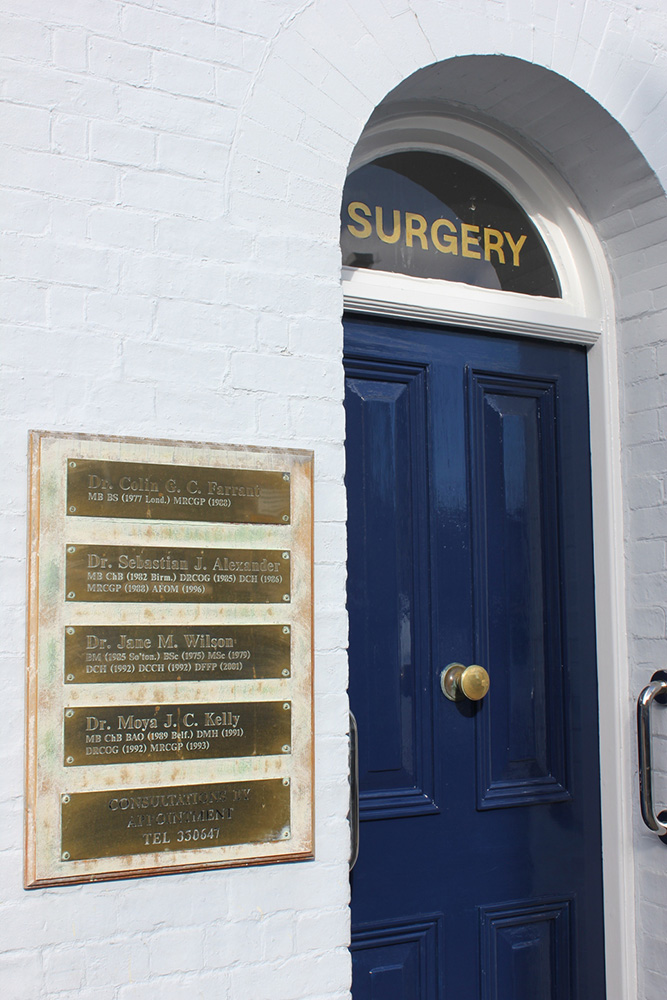What GPs do....
Each year I spend a couple of afternoons with very new, first year medical students, giving them a taste of what general practitioners do. Recently I’ve started the teaching session by asking them what they think GPs do. Mostly they say we treat trivial illnesses like coughs and colds, and refer patients to hospital. When I ask what proportion of patients I refer to hospital they are astonished how few are referred. They – and perhaps much of the population – don’t appreciate how much illness we investigate, diagnose and treat. We are the only
general physicians left in the UK. Few appreciate that it can be bad news to be referred to the wrong subspecialty. In a busy morning at the surgery I might see 20 patients and refer one or none. And this isn't because of budget considerations, but in order to protect our patients and deliver good quality care. It is astonishing how many people come saying "I need an MRI" or "I need blood tests" when what they need is pain relief and advice on treating and/or avoiding their problem.
In a typical five-hour, half day session I will also be in contact with numerous patients on the phone too – following up on the results of tests I have arranged and making plans and developing treatment timelines. We are accessible and familiar. We are good at thinking holistically and know medicines and investigations don't cure all problems.
In defence of the assumption that GPs are only a conduit for referrals, I thought I’d make a list of some of the things we do:
GPs give excellent
continuity of care
See
acutely ill patients and treat them
Care for patients
holistically
See all patients - from conception to cremation
Appointments are only for 10 minutes but we can offer repeated consultations until a problem is sorted
We diagnose
chronic conditions – diabetes, hypertension, hypothyroidism, etc, then treat and monitor
Care for the dying at home
Offer opportunistic
health education – obesity, smoking, alcohol, cardiovascular risk, osteoporosis, dermatological
Examine patients and issue
medical certificates (aka fit notes) and reports
Issue death certificates
Report Notifiable Infectious Diseases
Deal with most
mental health diagnoses
Review all patients on
repeat medication at least annually
Arrange
monitoring tests
Fit intra-uterine contraceptive devices, sub-dermal implants, vaginal rings, contraceptive diaphragms
Administer hormone implants for cancer patients / anti-D to Rhesus –ve pregnant women
First point for
Counselling, after bereavement, etc
Advocates for patients including writing letters of support
Attend multidisciplinary meetings
Child Protection & vulnerable adults activities
Perform minor operations
Phlebotomy – if our nurses can’t manage, or for the housebound
Site, resite and replace urinary catheters
Endeavour to deflect unreasonable requests for tests and investigations
Prescribe for alcohol and other detoxification
Liaise between specialists and interpret specialist advice, and prescribe
Insurance and fit to fly medicals
Travel health advice and prescribing
Returning traveller screening/treatment
Joint injections.
In addition and sometimes interrupting routine clinics we....
Attend medical emergencies
Triage calls from patients who are worried or distressed
Manage life-threatening conditions alone and without access to instant tests
Attend psychiatric emergencies and "section" patients under the Mental Health Act
Attend to telephone consultations
Deal with urgent prescription requests including instructions from the hospital to prescribe.
Out of clinic times we....
Visit the housebound
Supervise community nurses and often pick up duties that they used to cover
Act as community phlebotomist, esp INR blood testing in the frail elderly who take warfarin
Give flu immunisations to the housebound
Visit to site and attend to catheters
Examine constipated housebound patients before nurses administer enemas
Liaise with Social Services, etc
Write referral letters, clinical summaries, advocacy for DoH etc
Reports for DoH, DVLA, occupational health, etc
Field tens of telephone queries from patients most days
Teach medical students including arranging patients to see and negotiating with patients (and mopping up afterwards)
Attend GP group meetings
Keep up to date
Manage our employees
Manage medicines budgets
Referral rate monitoring etc
Practice meetings
In-house training and education
Some of us also work giving Out of Hours cover
And many of us have second careers too.
The job can be fraught, and frustratingly rushed at times, but it is endlessly fascinating and rewarding.
